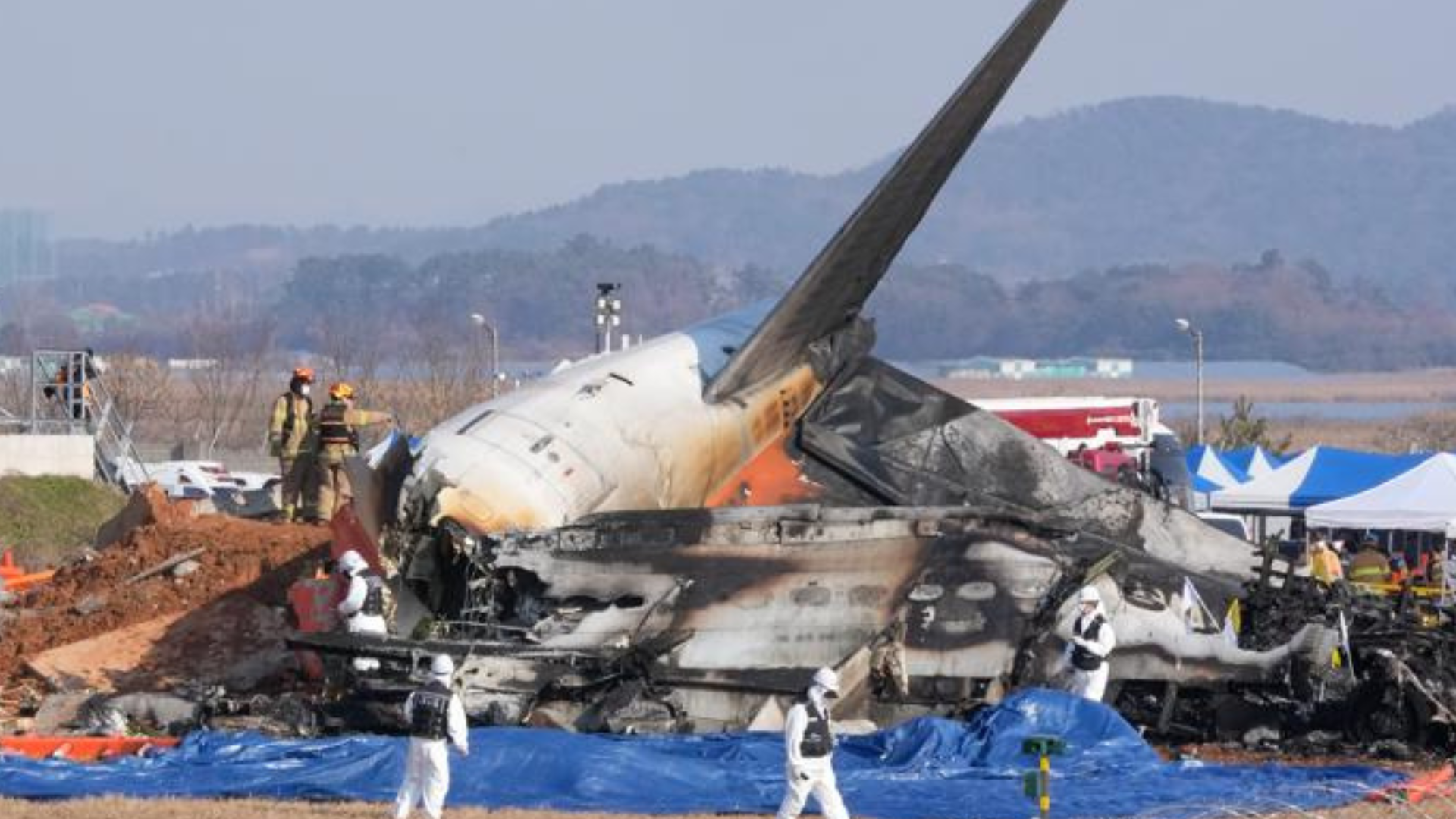The Greek Ministry of Foreign Affairs has expressed deep condolences following the tragic plane crash in South Korea, which claimed 179 lives on Sunday, December 29.
The ministry declared in a statement that Greece is “profoundly saddened by the tragic incident involving the plane crash in South Korea. We extend our sincere condolences to the families and loved ones of the victims during this difficult time.”
The crash occurred when Jeju Air flight 7C2216, arriving from Bangkok, attempted to land at Muan International Airport. The Boeing 737-800, which had 175 passengers and six crew members on board, failed to deploy its landing gear, resulting in a belly landing.
The aircraft skidded off the runway, hit a wall, and exploded in flames. Only two crew members survived, both of whom were hospitalised with injuries.
Profoundly saddened by the tragic incident involving the plane crash in South Korea.
— Υπουργείο Εξωτερικών (@GreeceMFA) December 29, 2024
We extend our sincere condolences to the families and loved ones of the victims during this difficult time. pic.twitter.com/qHxm0zkgyL
This accident is the deadliest in South Korea in nearly three decades, surpassing even the tragic 1997 Korean Air crash.
South Korean authorities are investigating potential causes, including bird strikes and weather conditions, as a bird strike warning had been issued shortly before the crash.
“At this point there are a lot more questions than we have answers,” aviation expert Gregory Alegi said, raising concerns about the plane’s speed, the lack of flaps, and the failure of the landing gear.
Boeing, the plane’s manufacturer, also expressed condolences: “We extend our deepest condolences to the families who lost loved ones, and our thoughts remain with the passengers and crew.”
Jeju Air CEO Kim E-bae apologised for the accident, stating there were no early signs of malfunction. The airline pledged to cooperate with the investigation and prioritise support for the families.
Source: Ekathimerini.
